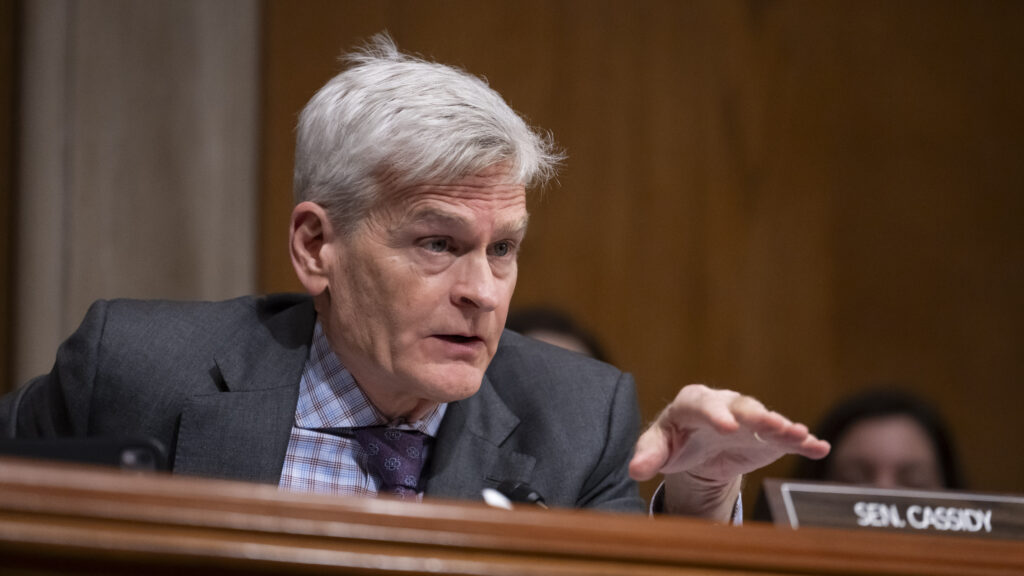40
The future of the American vaccination policy is suspended in balance as a vacuum of growing leadership for the centers for Disease Control and Prevention threatens to derail a crucial meeting next month. The call of the senator Bill Cassidy to postpone the meeting of the Consultative Committee on Vaccination Practices (APIP) – his second request – reports a crisis of in -depth confidence in the treatment of public health by the Biden administration, and in particular, his vaccine agenda.
Kennedy’s nominations fallout
The current agitation stems directly from the appointment of Robert F. Kennedy Jr. as secretary for health and social services. Cassidy, who first voted for the decisive vote to confirm Kennedy, has become more and more vocal in his criticisms following a overhaul of the revision of the ACIP. The replacement of Kennedy of experienced members of the panel by people perceived as missing expertise and potentially hosted by anti-vaccine views has triggered the request for initial postponement. The recent dismissal of the director of the CDC, Susan Monarez, would have been on disagreements with Kennedy’s policies, only intensified the situation.
A trusted departure and eroding model
Monarez’s ouster is not an isolated incident. Several other senior officials would have left the CDC to protest, creating a significant loss of knowledge and institutional expertise. This massive exodus raises serious questions about the stability and scientific integrity of the agency responsible for the protection of public health. The simultaneous announcement by the FDA of closer approval for COVVI-19 vaccines further complicates the landscape, suggesting a broader change in the administration approach to the control of infectious diseases.
What is at stake: the ACIP meeting of September
The planned meeting of the September APIP is essential. The panel should vote on recommendations for COVVI-19 vaccines and childhood routine vaccinations, including those of hepatitis B. Cassidy, argues that all the recommendations emerging from a meeting held in these circumstances would lack legitimacy. He insisted on “significant surveillance” before proceeding, fearing that the current composition of the AIPI and the lack of clear scientific process would lead to defective or political motivation decisions.
Beyond COVID-19: implications for infant vaccinations
The potential disturbance extends beyond the immediate response COVID-19. The recommendations concerning childhood routine vaccines are essential to maintain the immunity of the population and prevent epidemics from avoidable diseases. Any uncertainty or delay in these recommendations could have long -term consequences for public health, especially among vulnerable populations. The debate highlights an increasing tension between individual freedoms and collective responsibility in public health policy.
The future of vaccine trust and policy
This crisis does not simply concern staff changes; It reflects a broader erosion of confidence in public health establishments. The politicization of vaccines, fueled by disinformation and conspiracy theories, has created a deeply polarized environment. The appointment of Kennedy, given his long story of questioning the security of vaccines, only exacerbated these divisions. For the future, several trends are likely to emerge:
- Increased examination of the APIP: Expect increased monitoring of the APIP composition congress, decision-making processes and potential conflicts of interest.
- Decentralization of vaccine policy: States can increasingly take the lead by fixing their own vaccine requirements, leading to a patchwork of policies across the country.
- Focus on transparency and communication: Public health agencies will have to prioritize transparent communication and actively fight against disinformation to rebuild public confidence.
- Investment in vaccine education: The increase in funding for vaccine teaching programs will be crucial to treat the hesitation of vaccines and promote informed decision -making.
The current situation requires a prudent and considered response. A hasty or politically motivated approach to the vaccine policy could have devastating consequences for public health. The reconstruction of confidence in the CDC and the guarantee of the scientific integrity of the ACIP is essential. The challenges are high and the future of American public health is at stake.
What are your predictions for the future of vaccine policy in the United States? Share your reflections in the comments below!
